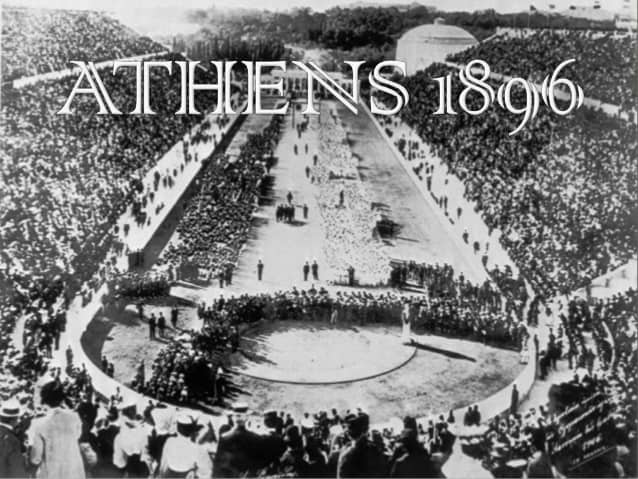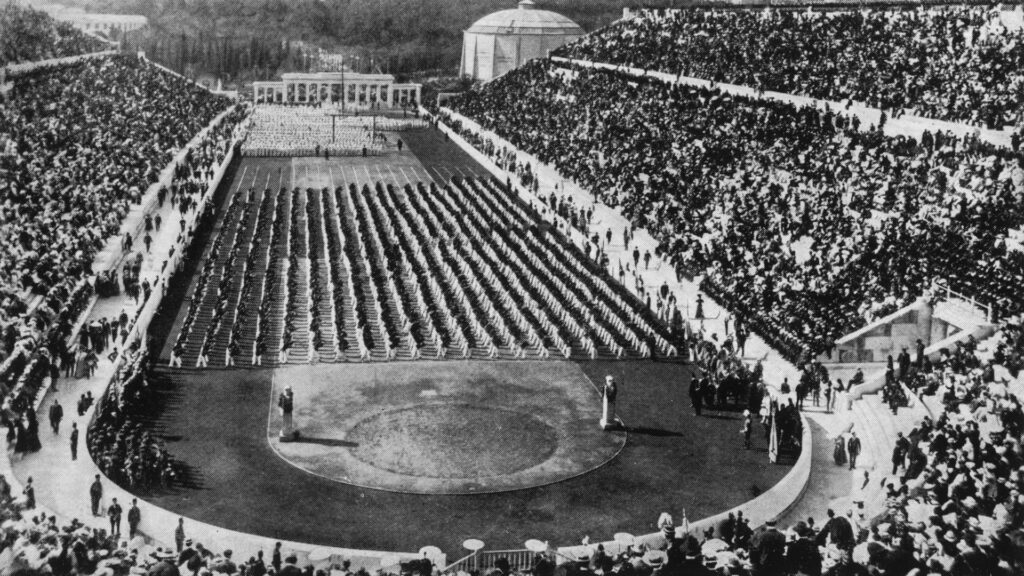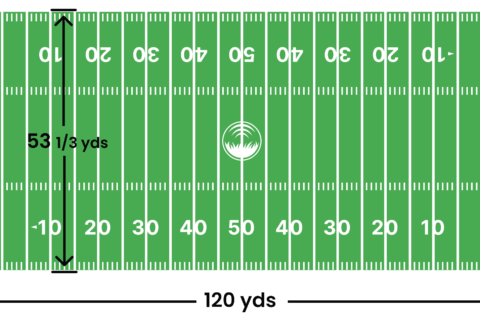The first modern Olympic Games were held in 1896 in Athens, Greece. This event marked the beginning of a new era in sports. People from around the world came together to compete. The Games were a revival of the ancient Olympics. They were a celebration of peace and unity.
History of the Olympic Games
The ancient Olympic Games began in 776 BC in Olympia, Greece. They were held every four years. The Games were a tribute to the Greek god Zeus. Athletes from different Greek city-states competed in various sports. The ancient Games continued until 393 AD. Then, they were banned by Emperor Theodosius I.
Many years later, the idea of the Olympics was revived. A Frenchman named Pierre de Coubertin led the effort. He believed in the power of sports to unite people. In 1894, he founded the International Olympic Committee (IOC). The IOC decided to hold the first modern Olympic Games in Athens.

Credit: greekcitytimes.com
The 1896 Olympic Games
The first modern Olympic Games took place from April 6 to April 15, 1896. Athens, the capital of Greece, was chosen as the host city. The Games were held in the Panathenaic Stadium. This stadium was built in ancient times and restored for the event.
The 1896 Olympics featured 9 sports and 43 events. About 241 athletes from 14 countries participated. The sports included athletics, cycling, fencing, gymnastics, shooting, swimming, tennis, weightlifting, and wrestling. Women were not allowed to compete in these Games.
Notable Events And Athletes
| Event | Winner | Country |
|---|---|---|
| 100 meters | Thomas Burke | USA |
| Marathon | Spyridon Louis | Greece |
| Gymnastics Team | Germany | Germany |
One of the most memorable events was the marathon. The race covered a distance of 40 kilometers. Spyridon Louis, a Greek runner, won the marathon. His victory was celebrated by the Greek people. It brought great pride to the host nation.
Another notable athlete was Thomas Burke from the USA. He won the 100 meters and 400 meters races. Burke’s unique crouch start technique was groundbreaking. It became a standard practice in sprinting.
Significance of the 1896 Olympic Games
The 1896 Olympic Games were a milestone in sports history. They revived the ancient tradition of the Olympics. The Games promoted peace and friendship among nations. They also inspired future generations of athletes.
The success of the 1896 Olympics led to the continuation of the Games. The Olympics have grown in size and popularity over the years. Today, they are one of the biggest sporting events in the world.

Credit: www.britannica.com
Legacy of the First Modern Olympic Games
The legacy of the 1896 Olympic Games lives on. Athens is still remembered as the birthplace of the modern Olympics. The Panathenaic Stadium remains a symbol of this historic event. The Olympic spirit continues to inspire athletes and fans worldwide.
The first modern Olympic Games set a precedent for future events. The principles of fair play, sportsmanship, and unity are still upheld. The Olympics bring together people from different cultures and backgrounds. They celebrate the best of human potential and achievement.
Conclusion
The first modern Olympic Games were held in 1896 in Athens, Greece. This event marked the rebirth of the ancient Olympics. It brought together athletes from around the world. The 1896 Olympics laid the foundation for future Games. They promoted peace, unity, and excellence in sports.
The legacy of the first modern Olympics continues to inspire. The Games are a celebration of human potential and achievement. They remind us of the power of sports to unite and uplift. The Olympic spirit lives on, thanks to the historic event in Athens.








